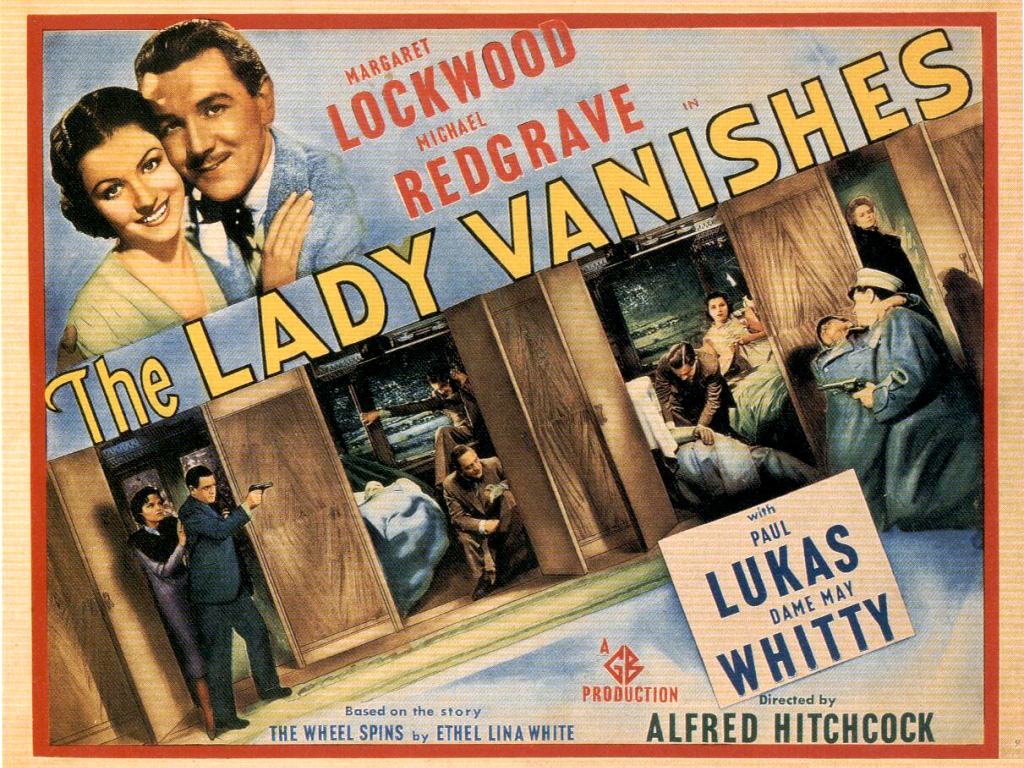FLOOD’s weekly Pop Culture Cure offers an antidote—or ten—to the most upsetting developments of the past week. (Because therapy’s expensive, and entertainment’s not.)
The much anticipated streaming film service FilmStruck was supposed to launch yesterday, but it, uh, didn’t. So now here we are with the TCM offerings still airing on TCM (but here I am with all these cut cables in my hands!) and with some Criterion offerings still streaming on Hulu (but with the “Criterion” tab sadly dropped!), and that will have to do for now. The new FilmStruck launch date is set for November, but in the meantime there’s no need to sit passively by. Streaming services still have gold buried in them thar hills; we just have to work a bit harder to find ’ems. But it’s god’s work, gem-findery is. So let’s dive in.
NB: In the spirit of Criterion and TCM, this list contains deeper and, I hope, better cuts than you’d find by just clicking on the “classic films” link on your average streaming site (where Crocodile Dundee features prominently), so bear with me if some of the names are unfamiliar. They are all phenomenal, I swear to Spielberg.
https://www.youtube.com/watch?v=3uw6QPThCqE
An American Werewolf in London, directed by John Landis (1981, available via Amazon Prime)
Just a friendly reminder that “classic” doesn’t necessarily mean old. John Landis’s cult-classic film is, for my money, the perfect Halloween movie: it’s got humor, suspense, body horror, and enough thematic depth to make you think that maybe this whole werewolf thing is about something more than just werewolves. And that’s enough for me. Horror fans know how influential this film is, but that recognition has yet to penetrate more broadly. It also gleefully joins the tradition of the Mad Max films in believing that a sufficiently high level of technical expertise can be enough to sustain a feature film. (PS: Landis, like George Miller, was right.)
Hobson’s Choice, directed by David Lean (1954, available via Hulu)
David Lean is now remembered for his epics, but man alive if he couldn’t direct a small domestic drama too. This is the story of how an ‘umble cobbler came to topple a drunk and domineering businessman (played by Charles Laughton) via said businessman’s v. savvy daughter. It is a very great, very ‘umble film, that will, I am sure, never escape the shadow of Lean’s Lawrence of Arabia despite being, by far, the better (and far, far, far, more appealing) film. If there’s a better genre than the small-business procedural I have yet to encounter it.
The Mirror, directed by Andrei Tarkovsky (1975, available via YouTube)
I think this is the single most beautiful movie I’ve ever seen, and it’s the only thing that enables me to speak seriously of the notion of “a soul.” And at this point I don’t even care how that makes me sound. This movie is worth watching no matter who you are, or what you think you like or don’t like when you go to see a movie. Because like you, this movie is a human being. And that’s all I have to say about that.
The Lady Vanishes, directed by Alfred Hitchcock (1938, available via OpenCulture)
Hitchcock made better films, and he made prettier films, but it’s still hard for me to think of a movie that he made that’s more fun than this 1938 gem. It also happens to have nearly all of the elements that he would later become famous for: a frosty dame, an outlandish conspiracy, a crime that quickly implicates everyday people, and outlandish set pieces aplenty. It also had girls on a train before girls on a train was cool.
Umbrellas of Cherbourg, directed by Jacques Demy (1964, available via Hulu)
This is my favorite musical that doesn’t rhyme with spamilton. And if you ever want to really ruin—like just absolutely torch—a budding romance on Valentine’s Day, please do everyone a favor and play this film. Or, even better, make this part one of a double feature, following Blue Valentine. Love is a lie, and life is a tragedy, and goodnight, Irene, goodnight.
The Bad Sleep Well, directed by Akira Kurosawa (1960, available via Hulu)
Akira Kurosawa pays off the way Alfred Hitchcock pays off: all the livelong day. We’ve highlighted Stray Dog and High and Low here before, and most people interested in movies know about Seven Samurai and Rashomon, but stopping there is like stopping at The Birds. There is plenty more hot shit in that metaphorical toilet, and I’m so sorry for stumbling into that sewer-heavy figure of speech, I’m still not quite sure what happened just then. But yeah, The Bad Sleep Well is a consistently unpredictable white-collar/blue-collar/blood-collar crime thriller that still feels utterly fresh and alive.
M, directed by Fritz Lang (1931, available via YouTube)
This is one of those movies that people tell you that you should see (like The Birth of a Nation—the original one) but this movie is actually good. That is to say, it is terrifying, electrifying, fun, and full of life. Peter Lorre whistled all the warmth out of my blood the first time I saw M, and I dare you to avoid that same fate. (Also worth noting: Fritz Lang films are very available, public domain–wise, and they are very worth seeking out.)
The Last Metro, directed by Francois Truffaut (1980, available via Hulu)
Francois Truffaut’s name still somehow connotes pretentious art-house cinema, even though most of his films (Jules et Jim aside) are profoundly unpretentious, genial, and fun. The Last Metro is perhaps on the darker, more serious end of the spectrum, but there are plenty of pleasures here as well. In fact, this quietly meta movie now seems like a subdued precursor to Inglorious Basterds, in that here, as there, the Nazis prowl around the arts while the artists seek to make something meaningful. The violence here is more emotional than physical, but the overall impact is still explosive.
Laura, directed by Otto Preminger (available via Netflix)
Gaslight had to become a verb in order to achieve a renaissance, so god only knows what poor Laura will have to do. But before it emojis itself or whatever, it’s worth another look, because it’s every bit as surprising, suspenseful, and fraught (if a bit more playful) as the best of early Hitchcock. And it begins with a dead girl who then comes to life without resorting to anything supernatural, and hallelujah that’s a blessing.
Two Days, One Night, directed by the Dardenne brothers (2014, available via Netflix)
This movie is two years old, but as TCM and the Criterion Collection well know, it doesn’t take long for films to achieve the status of “classic” if its creators are verifiable geniuses. And although the Dardennes have obvious (and streamable!) precursors in Italian neo-realism (Visconti! de Sica! Rossellini!) and independent film more broadly (Loach! Linklater! Arnold! Haigh! Et Cetera!), they are the current masters of the form. Every moment is suspenseful if every frame matters, and that’s the secret here. Also the fact that they make us care so deeply for everyone onscreen. Get on this train now, and never stop rolling. Their next masterpiece releases later this year.







